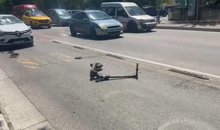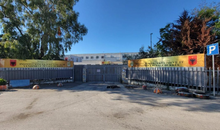
 Flash News
Flash News
Drenova prison police officer arrested for bringing drugs and illegal items into cell
Lavrov: NATO is risking self-destruction with new military budget
Kurti and Vučić "face off" tomorrow in Skopje
Construction worker dies after falling from scaffolding in Berat
The prosecution sends two Korça Municipality officials to trial
The conceptual challenge of the duo Millona-Gjoka is not just for satire

By Genc Pollo
"On the part of the citizen under investigation, Sali Berisha, in his capacity as Prime Minister of the Republic of Albania, concrete and active actions were carried out, through the approval of legal and by-law acts, in order to realize the interests of the five former owner families, where the direct beneficiary turned out to be his daughter's husband, citizen Jamarbër Malltezi"
This is the passage where special prosecutors line up all the evidence of the accusation against Mr. Berisha (excluding an administrative control of a directorate in the prime minister's office) declaring him a person under investigation and a suspect but not a defendant (accused) for "passive corruption in collaboration".
This indictment has sparked debate and objections from the violation of the specific constitutional freedoms of the deputy, to the ambiguity about the criminal offense that has been established and to the mystery why J. Malltezi is considered a state functionary without being such a day.
But the most special thing in this text is a precedent that the Special Prosecutor's Office has set with the evidence for the guilt of Mr. Berisha as quoted above.
The legal and bylaw acts in question are:
1- a law on the return of properties of v2006 which expands the rights of former owners on the grounds of tourist areas, properties of ministries (including that of Defense), research institutes and large strategic investments. The law of almost 30 articles also changes some criteria, price procedures, etc.
2 - a VKM of v2008 for the assessment of state property and for its sale procedure where, among other things, it was foreseen that the former owners could use privatization bonds of the 90s in the pre-purchase of the property.
These two official acts are of general normative nature. I mean their effect and obligation extends to all involved and interested entities. These parties are, in addition to state bodies and public institutions, also tens of thousands of former owners who claim the property, new land owners with the legal and financial service providers agreed by them.
It is the first time in Albanian criminal history, and as far as I have consulted in the world, that legislative acts with a general normative nature are considered as evidence of a crime due to the effect they may have had on a particular subject among many eyes. Maybe this is not the first time that some actions of prosecutors challenge the basic logic, but this time the challenge overcomes the concrete case and confronts the legal tradition of the continent and beyond.
More specifically, let's see the contrast with the individual official acts debated in recent years. KM Rama has personally signed the status of strategic investor for ministerial families as well as for bandits with Sky CC. He has also signed the VKM as the one that forgives the Navy base to private individuals (which was overturned by the court because "it harms national security). Rama has also signed dozens of acts for the concessions of incinerators and sterilization, which have been proven by the judiciary as unlimited looting of the taxpayer. These and others are under criminal investigation and we do not know if they will serve as evidence against him for the criminal offense of abuse of office. Depending on the definition of the motive as altruistic or selfish (he wanted to enrich others or he thought about himself) they can also prove "passive corruption". But in all cases these are unique acts with individual obligations and favors for a company or person. And in the Albanian world experience, individual official acts can exclusively be the product of abuse and corruption.
At a more theoretical level, general normative acts express a program, vision and political will. Individual official acts can be seen as implementing instruments of the former.
In the media, I have seen examples that illustrate the logical challenge of special prosecutors such as p. sh. a prime minister who increases salaries and pensions or liberalizes visas can be accused of favoring (also) his relatives. I like the inverted example better: Prime Minister Filan Fisteku is in a personal and political conflict with Mr. HQ. The Prime Minister decides to raise taxes. Mr. HQ, whose company's dividend is reduced as a result, complains about political and personal persecution, criminally accuses the prime minister of "abuse of duty" and finally asks the court not to pay the additional taxes.
The satire of this precedent can go on endlessly, but we do not have the luxury of reducing the judiciary to an object of humor, nor do we automatically attribute individual mistakes to the system.
Let's imagine in the worst nightmare that the above "evidence" is confirmed by the Albanian judiciary. Beyond the specific case, a consequence will be that a government can hardly sign public policies and generic laws because among the tens or hundreds of thousands of beneficiaries there may be his family members. And with that, a special prosecutor can charge them criminally.
We should also note that the Special Court often seems unable to play the corrective and guiding role towards SPAK and is in a hurry to seal the complaints that are presented to it.
Even worse, under the guise of the "unprecedented reform" and the government-international claims for the "young heroes", we are returning to the purely party-political arrests and indictments that we left behind in the 90s.
Latest news



Second hearing on the protected areas law, Zhupa: Unconstitutional and dangerous
2025-06-30 22:18:46



Israel-Iran conflict, Bushati: Albanians should be concerned
2025-06-30 21:32:42

Fuga: Journalism in Albania today in severe crisis
2025-06-30 21:07:11
"There is no room for panic"/ Moore: Serbia does not dare to attack Kosovo!
2025-06-30 20:49:53

Temperatures above 40 degrees, France closes nuclear plants and schools
2025-06-30 20:28:42
Lavrov: NATO is risking self-destruction with new military budget
2025-06-30 20:13:54
Turkey against the "Bektashi state" in Albania: Give up this idea!
2025-06-30 20:03:24

Accused of sexual abuse, producer Diddy awaits court decision
2025-06-30 19:40:44



Kurti and Vučić "face off" tomorrow in Skopje
2025-06-30 18:44:12
Tourism: new season, old problems
2025-06-30 18:27:23


Construction worker dies after falling from scaffolding in Berat
2025-06-30 17:51:44




Almost free housing: East Germany against depopulation
2025-06-30 16:43:06

Hamas says nearly 60 people killed in Gaza as Trump calls for ceasefire
2025-06-30 16:14:15
Drownings on beaches/ Expert Softa: Negligence and incompetence by institutions!
2025-06-30 16:00:03


European ports are overloaded due to Trump tariffs
2025-06-30 15:30:44
The prosecution sends two Korça Municipality officials to trial
2025-06-30 15:19:54

Lezha/ Police impose 3165 administrative measures, handcuff 19 drivers
2025-06-30 14:55:04
Young people leave Albania in search of a more sustainable future
2025-06-30 14:47:52
Record-breaking summer, health threats and preventive measures
2025-06-30 14:36:19


Constitution of the Parliament, Osmani invites political leaders to a meeting
2025-06-30 14:07:54

Heat wave 'invades' Europe, Spain records temperatures up to 46 degrees Celsius
2025-06-30 13:42:02
Accident in Vlora, car hits 2 tourists
2025-06-30 13:32:16

Kurti confirms participation in today's official dinner in Skopje
2025-06-30 13:03:27

Fight between 4 minors in Kosovo, one of them injured with a knife
2025-06-30 12:38:45

Report: Teenage girls the loneliest in the world
2025-06-30 12:20:40
Commissioner Kos and Balkan leaders meet in Skopje on Growth Plan
2025-06-30 12:07:59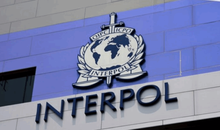
Wanted by Italy, member of a criminal organization captured in Fier
2025-06-30 11:55:53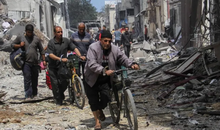
Hundreds of families displaced by wave of Israeli airstrikes in Gaza
2025-06-30 11:45:17
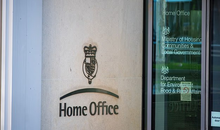
Zenel Beshi: The criminal who even 50 convictions won't move from Britain
2025-06-30 11:23:19
A new variant of Covid will circulate during the summer, here are the symptoms
2025-06-30 11:14:58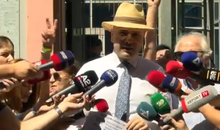
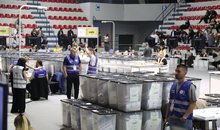
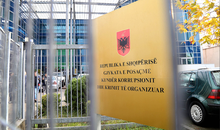
"Partizani" case, trial postponed to July 21 at the Special Court
2025-06-30 10:41:05
Uncontrolled desire to steal, what is kleptomania, why is it caused
2025-06-30 10:30:08
Requested change of security measure, hearing for Malltez postponed to July 7
2025-06-30 10:24:32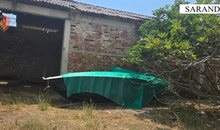
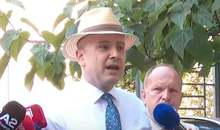

Output per working hour in Albania 35% lower than the regional average
2025-06-30 09:54:35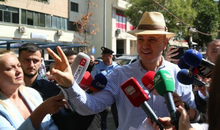

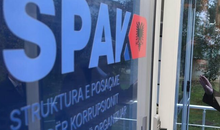
The trial for the "Partizani" file begins today
2025-06-30 09:27:57
22 fires in the last 24 hours in the country, 2 still active
2025-06-30 09:21:28
How is the media controlled? The 'Rama' case and government propaganda
2025-06-30 09:13:36
German top diplomat: Putin wants Ukraine to capitulate
2025-06-30 09:00:07
Foreign exchange, how much foreign currencies are sold and bought today
2025-06-30 08:44:38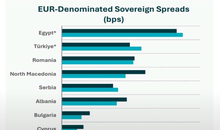
Chart/ Sovereign risk for Albania from international markets drops significantly
2025-06-30 08:26:38
Horoscope, what do the stars have in store for you?
2025-06-30 08:11:44
Clear weather and passing clouds, here is the forecast for this Monday
2025-06-30 07:59:32
Morning Post/ In 2 lines: What mattered yesterday in Albania
2025-06-30 07:47:37
Milan make official two departures in attack
2025-06-29 21:57:23
6 record tone
2025-06-29 21:30:46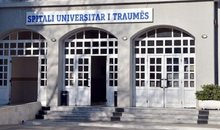
4-year-old girl falls from balcony in Lezha, urgently taken to Trauma
2025-06-29 21:09:58
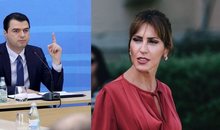

Assets worth 12 million euros seized from cocaine trafficking organization
2025-06-29 19:39:43
Fire in Durrës, Blushi: The state exists only on paper
2025-06-29 19:17:48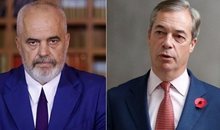

Fire endangers homes in Vlora, helicopter intervention begins
2025-06-29 18:27:51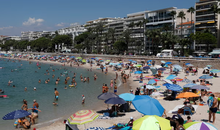
France implements smoking ban on beaches and parks
2025-06-29 18:02:08
England U-21 beat Germany to become European champions
2025-06-29 17:42:49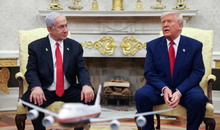
Trump criticizes Israeli prosecutors over Netanyahu's corruption trial
2025-06-29 17:08:10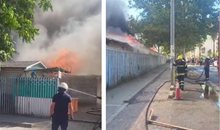
Street market in Durrës engulfed in flames
2025-06-29 16:52:57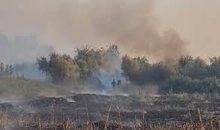
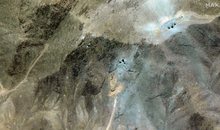
UN nuclear chief: Iran could resume uranium enrichment within months
2025-06-29 16:03:24
Albanian man dies after falling from cliff while climbing mountain in Italy
2025-06-29 15:52:01
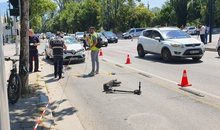
Another accident with a single-track vehicle in Tirana, a car hits a 17-year-old
2025-06-29 15:07:15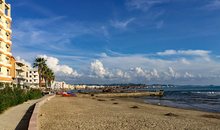
While bathing in the sea, a vacationer in Durrës dies
2025-06-29 14:54:01
Sentenced to life imprisonment, cell phone found in Laert Haxhiu's cell
2025-06-29 14:26:40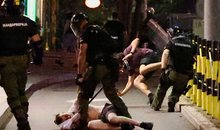
77 people detained in protest, Vučić warns of new arrests
2025-06-29 14:07:46